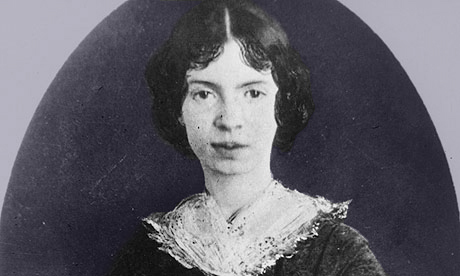
The 1880s were a difficult—and truncated—decade for Emily Dickinson. In addition to losing several close family members to various illnesses, Dickinson’s own health was turning toward irreversible decline. Conscious of her approaching death, the spring of 1886 was a fecund period of writing for Dickinson. She organized and edited many of her poems, in addition to penning numerous letters to friends and family. This letter, dated exactly one month before Dickinson’s death, is one of the last she wrote.
To Mr. C. H. Clark
April 15, 1886
Thank you, dear friend, I am better. The velocity of the ill, however, is like that of the snail. I am glad of your father’s tranquility, and of your own courage. Fear makes us all martial.
I could hardly have thought it possible that the scholarly stranger to whom my father introduced me, could have mentioned my friend, almost itself a vision, or have still left a legend to relate his name. With the exception of —— …your name alone remains.
“Going home,” was he not an aborigine of the sky?
The last time he came in life I was with my lilies and heliotropes. Said my sister to me, “The gentleman with the deep voice wants to see you, Emily”—hearing him ask of the servant.
“Where did you come from?” I said, for he spoke like an apparition. “I stepped from my pulpit to the train,” was his simple reply; and, when I asked, “how long?”—“twenty years,” said he, with inscrutable roguery.
But the loved voice has ceased; and to some one who heard him “going home” it was sweet to speak…. Thank you for each circumstance, and tell me all you love to say….
Excuse me for the voice, this moment immortal.
E. Dickinson
From Letters of Emily Dickinson. Edited by Mabel Loomis Todd. Cleveland: World Publishing Company, 1951.


